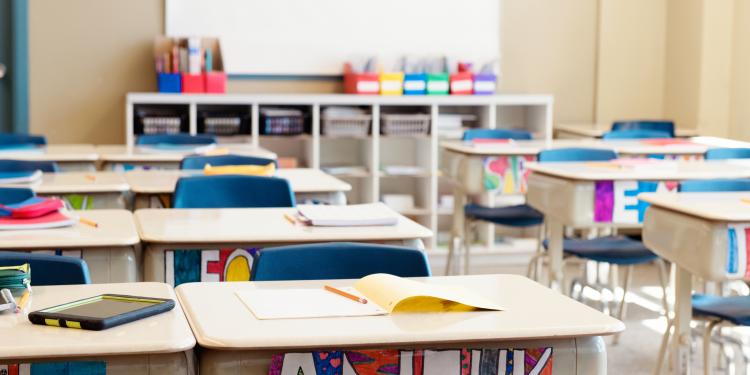Scheme:
Phase 1 Public Sector Low Carbon Skills
Technologies used:
Solar PV, Ground source heat pump, LED lighting
Region:
South West
Client type:
Maintained school
Your partner for a low carbon future

Phase 1 Public Sector Low Carbon Skills
Solar PV, Ground source heat pump, LED lighting
South West
Maintained school
Annual carbon savings tCO2e*
Total grant value
Annual energy savings
Saint Mary’s Catholic Primary School in Swindon, which is part of the Clifton Diocesan Education Consortium, has received £15,850 in funding as part of the Low Carbon Skills Fund to install several energy efficient technologies at its premises. The school, which supports approximately 400 students, is committed to the reduction of carbon across its estates and is determined to become an exemplar in sustainability for schools in South West England.
The school building was built in the mid-1950s and had been using gas boilers as its main source of heat generation. The school sought to invest in modern technologies to help it reduce its annual carbon emissions, as its fluorescent lights and two large gas fired boilers were resulting in high consumption of fossil fuels and expensive energy bills.
Initial plans laid out that the lighting would be replaced and upgraded to LED lighting. Following a feasibility study, it was decided that the aged gas fired boilers and gas fired Domestic Hot Water (DHW) system would be replaced with a Ground Source Heat Pump and Solar PV arrays installed on the roof of the two-story block. This project is expected to help the school reduce its annual carbon emissions by over 30 tonnes, helping it become significantly more sustainable whilst also reducing its energy bills.
The grant from Salix is amazing and will help us identify the areas where we can improve and reduce our carbon output. We have lots of initiatives running at school including a huge drive on recycling and the installation of LED lighting.
St Mary’s Catholic Primary School is also driving its environmental awareness campaign internally, particularly with its school children, who are involved in numerous environmental activities such as tree planting and recycling. The young volunteers who are passionate about climate change and sustainability, have recently been involved in planting 53 tree orchids on nearby land, including an oak tree.
The children are led by one of the teachers who is championing sustainability, with the children supporting each other in helping to create a more sustainable and environmentally aware culture at the school. Other prospective plans include looking at altering the school dinner menu by using locally sourced ingredients, using an ecofriendly cleaning supplier, and replacing paper towels with low energy hand driers.
The children are also educated about the importance of climate change, and although it is not part of the national curriculum, they are given lessons and talks on matters involving the environment for an hour every week. The school has submitted a Condition Improvement Fund bid to the Department for Education which, if successful, will allow it to have an insulated roof installed across the entire premises. This would also provide a sound base for the Solar PV array panels to be installed on the main building
March 2022
*tonnes of Carbon Dioxide, calculated using Green Book emissions factors for electricity published by the government.
